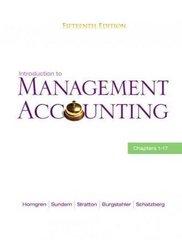Answered step by step
Verified Expert Solution
Question
1 Approved Answer
I have an assignment where I have to give responses on the article below the requirements for the responses are designed to expand the topics,
I have an assignment where I have to give responses on the article below the requirements for the responses are designed to expand the topics, "includes some new detail information, and/or clarifying details from additional research on that topic below. can you please include the references of the new sources you are sharing using citation format ?

Step by Step Solution
There are 3 Steps involved in it
Step: 1

Get Instant Access to Expert-Tailored Solutions
See step-by-step solutions with expert insights and AI powered tools for academic success
Step: 2

Step: 3

Ace Your Homework with AI
Get the answers you need in no time with our AI-driven, step-by-step assistance
Get Started


